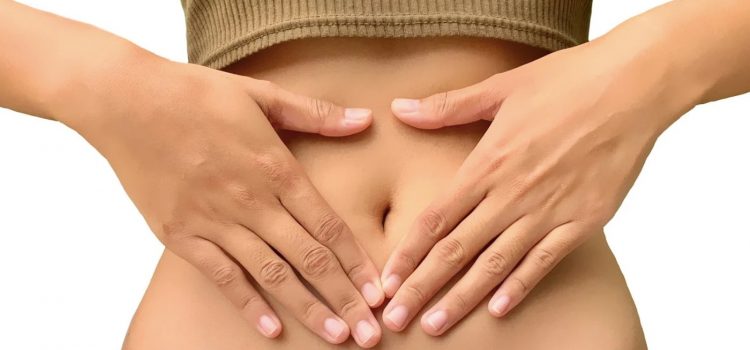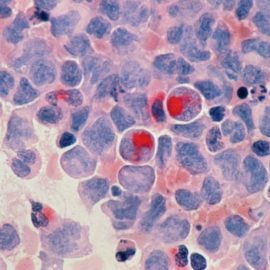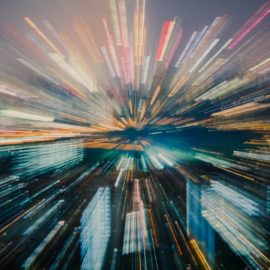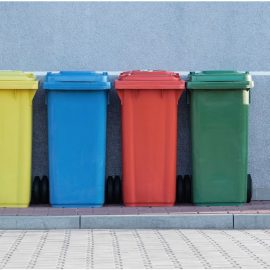

This article is an excerpt from the Shortform book guide to "Glucose Revolution" by Jessie Inchauspé. Shortform has the world's best summaries and analyses of books you should be reading.
Like this article? Sign up for a free trial here.
What happens in the body when we eat carbs? How do carbohydrates break down in our digestive system?
Carbohydrates are our body’s most important energy source, providing the majority of daily calories for most people. When ingested, carbohydrates break down into glucose. Then, glucose enters cells throughout the body.
Here’s a look at the carbohydrates breakdown process.
What Happens in the Body When We Eat Carbs
When we eat carbohydrates, they turn into glucose in the body. Then organelles in our cells called mitochondria transform glucose into energy, which powers all body systems.
(Shortform note: In The Plant Paradox, Steven Gundry discusses how glucose isn’t the only fuel for mitochondria—the fuel your mitochondria use depends on your circadian rhythms. During the day, mitochondria convert sugar into energy, but at night, they use ketones to create energy. Ketones are a special kind of fat that’s much easier to convert to energy than sugar. This means your mitochondria don’t have to work as hard at night, giving them much-needed rest. That being said, if you’re consistently eating too much sugar (as Inchauspé discusses), your mitochondria never get to rest, rendering this system less effective.)
Following carbohydrates’ breakdown, our glucose levels increase and our pancreas releases insulin. Insulin is a hormone that helps glucose that’s not being used for energy enter the liver, muscles, and fat for storage. The liver and muscles turn glucose into glycogen, a stored form of glucose that’s broken down whenever the body needs a quick boost of energy.
(Shortform note: Along with insulin—which decreases your blood glucose levels by storing glycogen—the pancreas releases another hormone to regulate your glucose levels called glucagon. Glucagon has the opposite effect of insulin: It raises your blood glucose up to healthy levels when it dips too low, such as during periods of exercise and fasting. It does this by prompting your liver to convert glycogen into usable glucose and release it back into the bloodstream. Glucagon also facilitates the production of glucose from sources in your body such as amino acids, and it prevents your liver from absorbing and reserving glucose.)
This storage system is one of the reasons we gain weight—when our diets have too much glucose in them, we overload our liver and muscles, and the only way the body can store that glucose is by adding on fat.
(Shortform note: There are two main types of fat that result from excess glucose in the body: fatty acids and triglycerides. Fatty acids are fats directly converted from sugar. Their small size allows them to pass through the cell membranes of fat cells in your body, meaning that your body can burn them for fuel as needed. However, some fatty acids become triglycerides, which are composed of three fatty acids connected by a glycerol molecule. These larger molecules are formed inside your fat cells, and they’re too big to pass through the cell membrane. As more triglycerides get stuck inside, our fat cells get larger, and we gain weight.)
Additionally, whenever we eat foods containing fructose, we compound weight gain, as fructose can only be stored as fat. Unlike glucose, we can’t directly use fructose for energy. (Shortform note: Fructose’s contribution to our body’s fat storage isn’t the only reason it makes us gain weight—studies suggest that its effect on the area of our brain called the hypothalamus makes us more likely to overeat. One function of the hypothalamus is to regulate appetite, and fructose increases the production of neuropeptides (chemical messengers released by neurons) that stimulate hunger and decrease fullness indicators.)

———End of Preview———
Like what you just read? Read the rest of the world's best book summary and analysis of Jessie Inchauspé's "Glucose Revolution" at Shortform.
Here's what you'll find in our full Glucose Revolution summary:
- Why you feel hungry soon after you eat and get tired throughout the day
- The role glucose plays in your body, both positive and negative
- Strategies for taking control of your health and glucose levels






